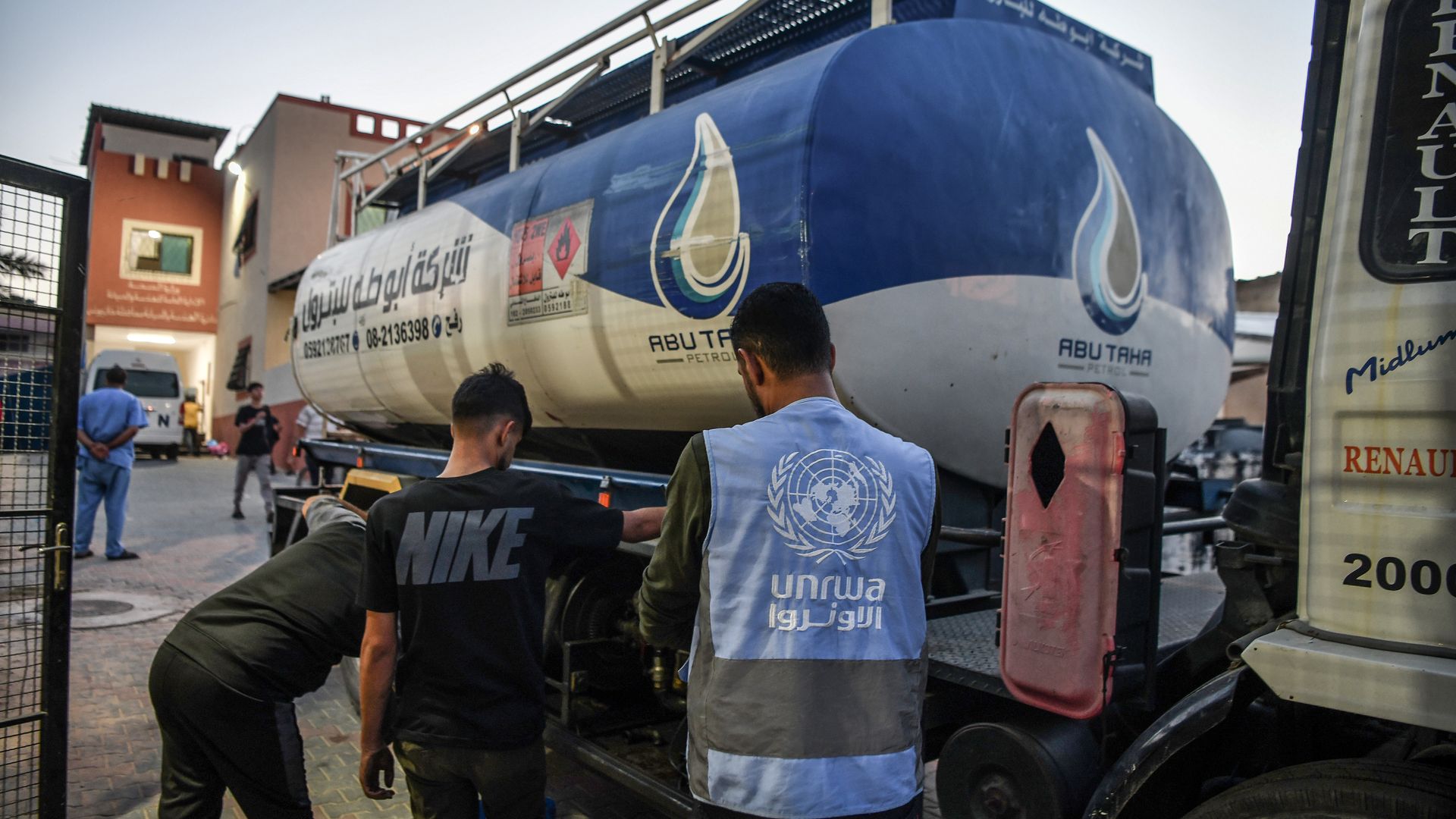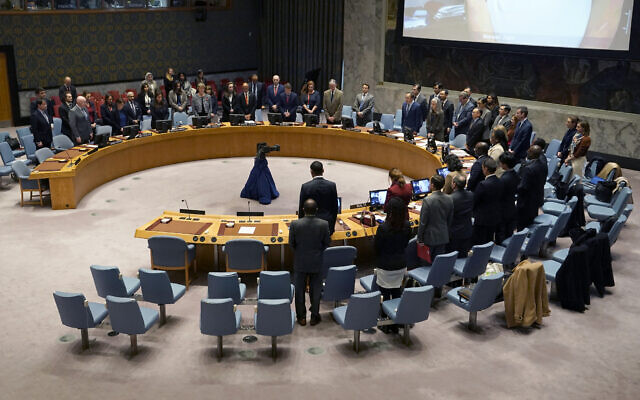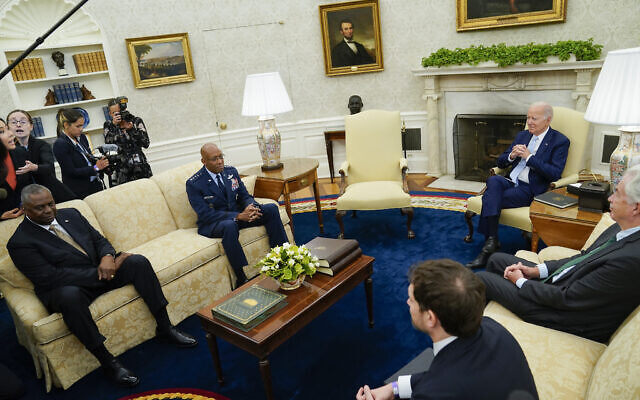 |
|
I hope you are doing well during this difficult time.
I’m writing to share important updates and J Street’s recent statements. Hamas’ heinous terror attack on October 7, and the ensuing Israeli military response, ongoing war, and devastating humanitarian crisis in Gaza, have sparked important questions about international humanitarian law, the legal bounds of war, and the obligations of combatants during armed conflict. I’m pleased to invite you to a virtual discussion and Q&A on this critical subject with renowned Israeli human rights lawyer Michael Sfard, this Sunday, November 19 at 1pm EST. I hope you can join us for this important and timely discussion – you can register HERE.
In case you’ve missed any of J Street’s statements or recent webinars, I encourage you to take a look at J Street’s crisis response page. In the meantime, please don’t hesitate to reach out with any questions.
Best,
Regev
—
Regev (Rae) Ortal (she/her)
Senior Government Affairs Associate, J Street
mobile: (719) 301-8453 | [email protected]
Find J Street: Website | Facebook | Twitter
|
This week on j street
|
|
|
| WORD FROM J STREET PRESIDENT, JEREMY BEN AMI |
|
DEFEAT TERROR. PROTECT CIVILIANS. PURSUE PEACE.
|
| Read more → |
|
|
|
|
|
What we’re reading
|
Israel approves daily entry of fuel into Gaza after U.S. pressure
|
 |
| The Israeli war cabinet late Thursday approved a plan to allow the entry of fuel into the southern Gaza Strip from Egypt following strong pressure from the Biden administration, two Israeli and U.S. officials said. It is the first time since the Oct. 7 Hamas terrorist attack that Israel will allow a significant amount of fuel into Gaza on a regular basis… About 60,000 liters of fuel will be allowed to enter the Strip through the Rafah border crossing every day in two UN fuel tankers and will be delivered under UN supervision to civilian facilities in southern Gaza, an Israeli official said. “This decision is meant to allow the operation of water, sewage and sanitation systems in southern Gaza in order to prevent the spread of disease that will harm the civilian population,” the Israeli official added. According to a second Israeli official, the amount of fuel that will enter the Gaza Strip is still pretty limited. Before the war, nearly 7 million liters of fuel entered the enclave every week. The two Israeli officials said the IDF will monitor the supply of fuel to make sure it doesn’t reach Hamas. The first fuel delivery took place on Friday, according to an Israeli official… A senior U.S. official said Israel wanted to allow fuel in as part of a hostage deal but the Biden administration made it clear Israel can’t wait for such a deal to emerge while people in Gaza could be dying because of shortage of fuel. |
| read more |
UN Security Council approves resolution calling for ‘humanitarian pauses’ in Gaza
|
 |
| The UN Security Council approved a resolution Wednesday calling for “urgent and extended humanitarian pauses and corridors throughout the Gaza Strip” after four failed attempts to respond to the Israel-Hamas war. The vote was 12-0 with the United States, United Kingdom, and Russia abstaining. The final draft watered down language from a “demand” to a “call” for humanitarian pauses. It also watered down a demand for “the immediate and unconditional release of all hostages held by Hamas and other groups.” The resolution makes no mention of a ceasefire. It also doesn’t refer to Hamas’s devastating October 7 onslaught on Israel, in which terrorists rampaged through southern communities, killing over 1,200 people, mostly civilians butchered in their homes and at a music festival, and kidnapping some 240 people… The resolution asks that “all parties comply with their obligations under international law, notably with regard to the protection of civilians, especially children…” UN Security Council resolutions are legally binding, but in practice, many parties choose to ignore the council’s requests for action. |
| read more |
Opinion | The Most Revealing Moment From My Trip to Israel
|
 |
| During my nine days of reporting recently in Israel and the West Bank, little did I know that the most revealing moment would come in the final hours of my visit. As I was packing to leave on Saturday night, Prime Minister Benjamin Netanyahu gave a news conference in which he indicated that Israel and the United States do not have a shared vision of how Israel should complete its war in Gaza or how to convert any Israeli victory over Hamas into a lasting peace with the Palestinians. Without such a shared strategy, the Biden administration and the American people, particularly American Jews who support Israel, will need to make some fateful decisions. We will have to either become captives of Netanyahu’s strategy — which could take us all down with him — or articulate an American vision for how the Gaza war must end. That would require a Biden administration plan to create two states for two indigenous peoples living in the areas of Gaza, the West Bank and Israel. |
| read more |
How the U.S. is trying to bring home American hostages held in Gaza
|
 |
| The current hostage crisis in Gaza is unlike any other, experts say. While there have been previous situations involving large numbers of hostages, and even hostages from numerous countries, there has been nothing quite like this: a mass kidnapping of hundreds of people of more than two dozen nationalities, including children and the elderly, all now hidden in a war zone underlaid with tunnels. There are about 240 hostages being held in Gaza, according to Israeli officials. At least nine Americans and one legal permanent resident are believed to be among them. One is a 3-year-old child whose parents were killed in the Oct. 7 attack by Hamas on Israel, which left about 1,200 people dead. Two American women were previously released by Hamas on Oct. 20. The crisis represents a major test for the Biden administration and for U.S. hostage policy… In a policy that dates back to the 1970s, the United States has long stated that it will offer “no concessions” to hostage-takers. But the reality is more complex. |
| read more |
The Tragedy of Al-Shifa Hospital: Israel’s Biggest Moral Challenge in the Gaza War
|
 |
| More than a month after the war in Gaza broke out, the fighting has one salient symbol: Al-Shifa Hospital in the western part of Gaza City. The combination of it being the largest, most important hospital in Gaza, a fast growing refugee camp for desperate Gazans of all ages, and a tool used by Hamas – as a vast human shield above the organization’s main command center – embodies the impossible challenge it presents for Israel. |
| read more |
Netanyahu stances frustrating US attempts to rally Arab support for post-Hamas Gaza
|
 |
| Prime Minister Benjamin Netanyahu’s rejection of the Palestinian Authority returning to the Gaza Strip is undermining US efforts to rally like-minded Arab countries around a strategy for stabilizing the coastal enclave after the Israel-Hamas war, an administration official and two senior Arab diplomats told The Times of Israel. Netanyahu’s refusal to address who will govern Gaza if Israel succeeds in toppling Hamas, along with the premier’s mixed messaging regarding whether the Israeli military will re-occupy the Strip, have pushed away Jordan, Egypt, Saudi Arabia, and the United Arab Emirates. The Biden administration believes the backing of those countries will be needed to help rehabilitate and manage the Strip for an interim period after the war, the three officials explained. But absent a post-war strategy, the countries will be more likely to instead pile pressure on Israel to cease fighting short of its goal of removing Hamas. Sensing that Netanyahu is being hamstrung by his far-right coalition allies, the US has begun to ask about the possibility of a more moderate government being shuffled in, according to a former official. |
| read more |
Hamas envisioned deeper attacks, aiming to provoke an Israeli war
|
 |
| The first clues came from the bodies of slain militants: maps, drawings, notes, and the weapons and gear they carried… The evidence, described by more than a dozen current and former intelligence and security officials from four Western and Middle Eastern countries, reveals an intention by Hamas planners to strike a blow of historic proportions, in the expectation that the group’s actions would compel an overwhelming Israeli response. Several officials who had not previously spoken about the matter said the intelligence about Hamas’s motivations has become stronger in recent days… New evidence suggests that they were prepared to go even further. Some militants carried enough food, ammunition and equipment to last several days, officials said, and bore instructions to continue deeper into Israel if the first wave of attacks succeeded, potentially striking larger Israeli cities… Hamas was willing to accept such sacrifices as the price for kick-starting a new wave of violent Palestinian resistance in the region and scuttling efforts at normalizing relations between Israel and Arab states, according to current and former intelligence officials and counterterrorism experts. |
| read more |
Israel’s humanitarian pauses in Gaza, explained
|
:format(webp)/cdn.vox-cdn.com/uploads/chorus_image/image/72855853/1786001062.0.jpg) |
| Israel has agreed to four-hour daily humanitarian pauses in areas of northern Gaza, as US officials announced Thursday. The pauses, meant to allow civilians to safely leave for southern Gaza, comes amid an increasingly dire humanitarian crisis as Israel continues to bombard one of the most densely populated places on the planet. The windows have so far allowed 100,000 people to move, according to Israeli officials — but it’s not clear that the safe routes and pauses are enough as more than 11,000 Palestinians have been killed and calls for a ceasefire grow louder. The new agreement is the result of US pressure on Israeli Prime Minister Benjamin Netanyahu, with National Security Council spokesperson John Kirby telling reporters that the new policy is due to President Joe Biden’s “personal leadership and diplomacy.” But Biden was apparently unable to obtain the more prolonged ceasefire he sought to secure the release of hostages, Politico reported Thursday… US officials expect that the daily pauses will also allow for increased humanitarian aid to enter Gaza, as residents have received only a fraction of the basic goods via aid organizations that they did previous to the war… While pauses offer some measure of safety for people fleeing Israel’s operations in northern Gaza, the totality of the humanitarian crisis there remains overwhelming. |
| read more |
King of Jordan: A two-state solution would be a victory for our common humanity
|
 |
| For more than a month now, the war in Gaza has been dividing the world, with the deepening split aggravated by intense emotions. Two narratives, Palestinian and Israeli, have pitted demonstrators, media outlets, religions, peoples and regions against each other. In the process, the moral clarity that we should and must share about basic human values has turned into moral confusion… Leaders everywhere have the responsibility to face the full reality of this crisis, as ugly as it is. Only by anchoring ourselves to the concrete facts that have brought us to this point will we be able to change the increasingly dangerous direction of our world. |
| read more |
|